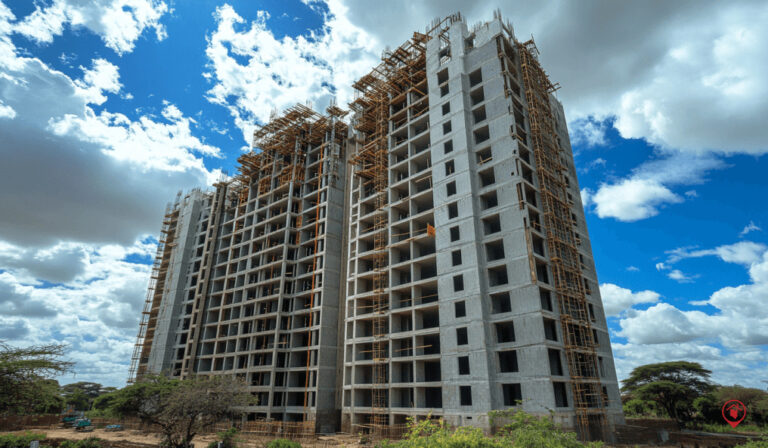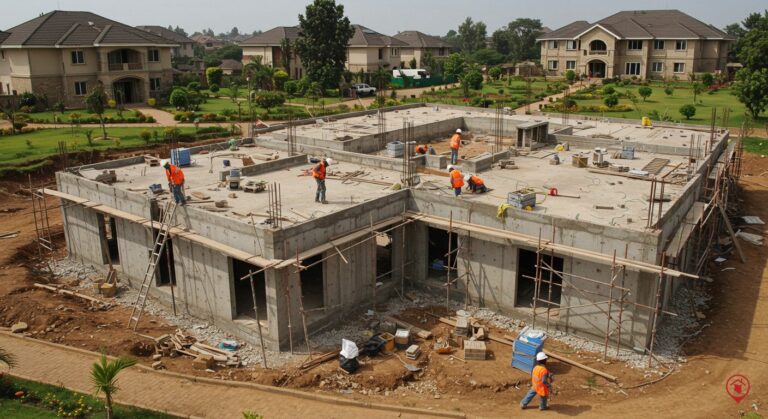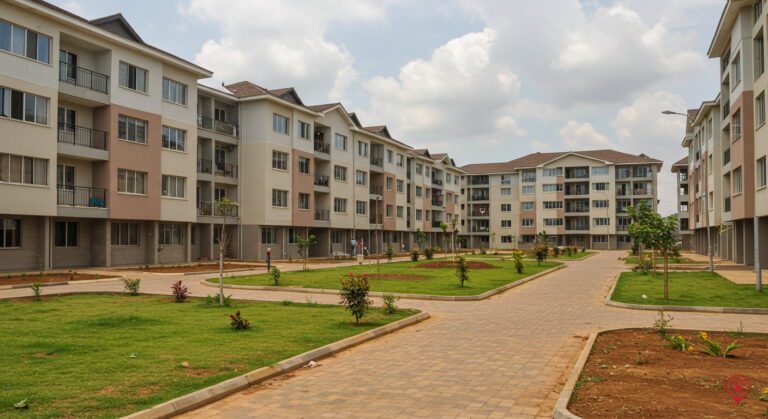Buyer’s Paradise or Seller’s Playground?: What the Current Kenyan Real Estate Market Means for You
- For the past few years, we’ve seen Kenya’s real estate market transform before our eyes.
- A buyer’s market simply means the conditions favour the buyer. This usually happens when there are more houses available than there are people ready to buy.
- A seller’s market is where demand outweighs supply. There are more people looking to buy or rent than there are properties available
- Kenya’s real estate market is active, evolving, and full of potential, but it’s not leaning entirely in favour of buyers or sellers.
For the past few years, we’ve seen Kenya’s real estate market transform before our eyes. Land that once sat untouched is now home to apartment blocks, high-rise buildings, gated estates, commercial hubs, and even mixed-use developments. It’s clear, the market has grown significantly.
But with all this growth, it begs the question: is this a buyer’s paradise or a seller’s playground? Who’s really reaping the benefits? Is the market stable enough for investors and fair enough for first-time buyers? In this article, we’ll unpack where the opportunities lie and what it all means for you.
What’s Driving the Shift in Real Estate?
If you’ve been paying attention, you’ve probably noticed just how fast the real estate market in Kenya is shifting. And no, it’s not just luck, there are real factors driving this boom. For starters, infrastructure has changed the game. New roads, bypasses, and the expressway have made movement easier and opened up access to towns like Ruiru, Syokimau, Ngong, and Kitengela, all of which have exploded with development.
The growth in population has also played a significant role in driving this shift. More people are moving to towns and cities for work, school, and opportunity, which keeps housing demand high. Add in the rise of Kenya’s middle class — more people can now afford to buy or invest, especially with SACCOs, flexible plans, and real estate apps making the process easier.
And let’s not forget tech. Digital platforms have made browsing, comparing, and even booking property easier and faster. All these factors combined have made real estate the hotcake it is today.
Are We in a Buyer’s Market?
A buyer’s market simply means the conditions favour the buyer. This usually happens when there are more houses available than there are people ready to buy. In such cases, buyers have the upper hand, they can choose from a variety of options and negotiate better deals.
In Kenya, whether you’re in a buyer’s market really depends on where you’re looking. Some areas clearly show signs of this. Take Kilimani and Ruaka, for example, there’s been a rapid increase in apartment developments, leading to an oversupply. That means more units on the market than there are buyers, and many of them end up sitting empty.
A buyer’s market can also be triggered by factors like job losses or high interest rates, both of which make it harder for people to buy property. When that happens, developers are forced to get more creative just to close a sale.
In areas like these, buyers benefit from more options and stronger bargaining power. It’s not uncommon to see developers offering flexible payment plans, discounts, or off-plan deals just to attract serious interest.
Or Is It a Seller’s Playground?
On the flip side, a seller’s market is where demand outweighs supply. There are more people looking to buy or rent than there are properties available, which gives sellers the upper hand. In this kind of market, prices tend to go up, and sellers can close deals faster and with less pressure to negotiate.
In Kenya, certain areas clearly reflect this. Land in prime or fast-developing zones like Juja, Ngong, or Syokimau continues to appreciate steadily. Demand for well-located, affordable homes is still high, especially in towns where people are moving in large numbers for work or better access to the city.
Rental demand also plays a role. Areas with large student populations, professionals, or growing commuter zones often experience a constant need for rental units. That means landlords or sellers with quality, well-priced property can find tenants or buyers without too much struggle.
In a seller’s market, developers and landowners are in a stronger position. They don’t have to offer big incentives to close deals — demand is already doing the work for them.
What Does This Mean for You?
So, what do all these shifts actually mean for you, whether you’re a buyer, seller, or investor?
If you’re a buyer, this could be a great time to explore the market, especially in areas with an oversupply of units. You’re likely to find better deals, more flexible payment plans, and room to negotiate. Just be sure to do your homework, understand the area’s growth potential, check infrastructure plans, and don’t rush the process.
If you’re a seller or developer, it’s all about value. Buyers are more informed now than ever before. So, if your property is well-located, fairly priced, and offers something unique, whether it’s accessibility, design, or amenities, you’ll still attract serious interest. Also, keep an eye on policy shifts that can affect pricing strategies.
If you’re an investor, this is the time to get strategic. Look at up-and-coming locations, understand where demand is heading, and think long-term. Whether you’re buying to build, rent, or flip in the future, timing and location are everything.
In short, there’s opportunity, but it’s not one-size-fits-all. Knowing where you stand and what the market is doing will help you make smarter, more confident moves.
Conclusion
Kenya’s real estate market is active, evolving, and full of potential, but it’s not leaning entirely in favour of buyers or sellers. It really depends on the location, type of property, and timing. Some areas give buyers more room to negotiate, while others offer sellers a strong position to profit from high demand.
The most important thing is understanding the market before making your move. Whether you’re looking to buy your first plot, sell off an asset, or invest for the long term, there’s space for you — as long as you’re informed and strategic. Real estate isn’t just about buildings or land. It’s about knowing where the opportunity lies, and acting on it when the time is right.








